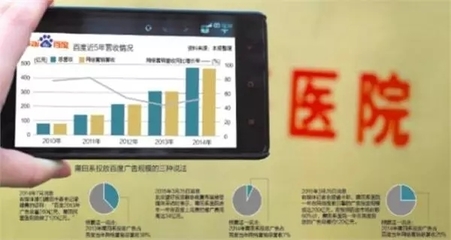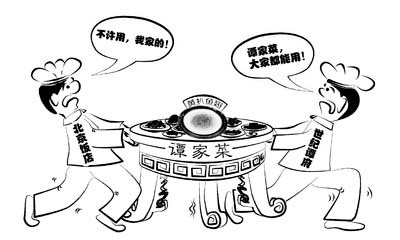中华人民共和国反不正当竞争法
Law for Countering UnfairCompetition of the P.R.C
第一章 总则
Chapter 1 General Provisions
第一条为保障社会主义市场经济健康发展,鼓励和保护公平竞争,制止不正当竞争行为,保护经营者和消费者的合法权益,制定本法。
Article 1 With a view to safeguarding the healthy development ofthe socialist market economy, encouraging and protecting faircompetition, stopping acts of unfair competition, and defending thelawful rights and interests of operators and consumers, this Law isenacted.
第二条经营者在市场交易中,应当遵循自愿、平等、公平、诚实信用的原则,遵守公认的商业道德。
Article 2 In carrying on transactions in the market, operatorsshall follow the principle of voluntariness, equality, fairness,honesty and credibility, and observe generally recognized businessethics.
本法所称的不正当竞争,是指经营者违反本法规定,损害其他经营者的合法权益,扰乱社会经济秩序的行为。
Unfair competition in this Law refers to acts of operators whichcontravene the provisions of this Law, with a result of damagingthe lawful rights and interests of other operators, and disturbingthe socio-econimic order.
本法所称的经营者,是指从事商品经营或者营利性服务(以下所称商品包括服务)的法人、其他经济组织和个人。
Operators in this Law refer to legal persons, other economicorganizations and individuals engaging in the trading of goods orprofit-making services. (Goods mentioned below includeservices.)
第三条各级人民政府应当采取措施,制止不正当竞争行为,为公平竞争创造良好的环境和条件。
Article 3 The people's governments at various levels shall adoptmeasures to stop acts of unfair competition, and create a salutaryenvironment and conditions for fair competition.
县级以上人民政府工商行政管理部门对不正当竞争行为进行监督检查;法律、行政法规规定由其他部门监督检查的,依照其规定。
The administrative authorities for industry and commerce in thepeople's governments above the county-level shall monitor andinvestigate acts of unfair competition. In respect of those actswhich, according to the provisions of various laws andadministrative regulations, shall be monitored and investigated byother departments, these provisions shall be abided by.
第四条国家鼓励、支持和保护一切组织和个人对不正当竞争行为进行社会监督。
Article 4 The State encourages, supports and protects allorganizations and individuals in carrying out social monitoring ofacts of unfair competition.
国家机关工作人员不得支持、包庇不正当竞争行为。
Staff members of state organs shall not support or cover up acts ofunfair competition.
第二章 不正当竞争行为
Chapter 2 Acts of Unfair Competition
第五条经营者不得采用下列不正当手段从事市场交易,损害竞争对手:
Article 5 Operators shall not adopt any of the following unfairmeans to carry on transactions in the market and cause damage tocompetitors:
(一)假冒他人的注册商标;
(1) Passing off the registered trademarks of others;
(二)擅自使用知名商品特有的名称、包装、装潢,或者使用与知名商品近似的名称、包装、装潢,造成和他人的知名商品相混淆,使购买者误认为是该知名商品;
(2) using, without authorization, the names, packaging ordecoration peculiar to well-known goods or using names, packagingor decoration similar to those of well-known goods so that theirgoods are confused with the well-known goods of others, causingbuyers to mistake them for the well-known goods ofothers;
(三)擅自使用他人的企业名称或者姓名,引人误认为是他人的商品;
(3) using, without authorization, the enterprise names or personalnames of others on their own goods, leading purchasers to mistakethem for the goods of others;
(四)在商品上伪造或者冒用认证标志、名优标志等质量标志,伪造产地,对商品质量作引人误解的虚假表示。
(4) Forging or falsely using, on their goods, symbols of qualitysuch as symbols of authentication and symbols of famous andhigh-quality goods, falsifying the origin of their goods, andmaking false representations which are misleading as to the qualityof the goods.
第六条公用企业或者其他依法具有独占地位的经营者,不得限定他人购买其指定的经营者的商品,以排挤其他经营者的公平竞争。
Article 6 Public utility enterprises or other operators havingmonopolistic status according to law shall not force others to buythe goods of the operators designated by them so as to excludeother operators from competing fairly.
第七条政府及其所属部门不得滥用行政权力,限定他人购买其指定的经营者的商品,限制其他经营者正当的经营活动。
Article 7 A local government and its subordinate departments shallnot abuse their administrative power to force others to buy thegoods of the operators designated by them so as to restrict thelawful business activities of other operators.
政府及其所属部门不得滥用行政权力,限制外地商品进入本地市场,或者本地商品流向外地市场。
A local government and its subordinate departments shall not abusetheir administrative power to restrict the entry of goods fromother parts of the country into the local market or the flow oflocal goods to markets in other parts of the country.
第八条经营者不得采用财物或者其他手段进行贿赂以销售或者购买商品。在帐外暗中给予对方单位或者个人回扣的,以行贿论处;对方单位或者个人在帐外暗中收受回扣的,以受贿论处。
Article 8 An operator shall not practice bribery by using money,valuables or other means to sell or buy goods. Where an operatorsecretly pays a kickback to the other party, be it an entity orindividual, off the book, it or he shall be punished for offering abribe; where the other party, be it an entity or individual,secretly accepts a kickback off the book, it or he shall bepunished for taking a bribe.
经营者销售或者购买商品,可以以明示方式给对方折扣,可以给中间人佣金。经营者给对方折扣、给中间人佣金的,必须如实入帐。接受折扣、佣金的经营者必须如实入帐。
In the selling or buying of goods, any operator may express clearlyits or his intention to offer a discount to the other party and paya commission to the middlemen. Where an operator gives a discountto the other party as pays a commission to the middlemen, it or hemust enter the items in the book factually. An operator accepting adiscount or commission must enter it in the bookfacually.
第九条经营者不得利用广告或者其他方法,对商品的质量、制作成分、性能、用途、生产者、有效期限、产地等作引人误解的虚假宣传。
Article 9 An operator shall not use advertisement or other means togive false, misleading information on the quality, composition,performance, use, manufacturer, useful life, origin, etc. of thegoods.
广告的经营者不得在明知或者应知的情况下,代理、设计、制作、发布虚假广告。
An advertisement operator shall not act as an agent for designing,producing and releasing false advertisements where they clearlyknow, or should know, that the information in the advertisements isfalse.
第十条经营者不得采用下列手段侵犯商业秘密:
Article 10 An operator shall not adopt any of the following meansto infringe on the business secrets of others:
(一)以盗窃、利诱、胁迫或者其他不正当手段获取权利人的商业秘密;
(1) obtaining business secrets from the owner of the right bystealing, promising of gain, resorting to coercion or otherillegitimate means;
(二)披露、使用或者允许他人使用以前项手段获取的权利人的商业秘密;
(2) disclosing, using or allowing others to use the businesssecrets of the owner of the right obtained by the means mentionedin the preceding item;
(三)违反约定或者违反权利人有关保守商业秘密的要求,披露、使用或者允许他人使用其所掌握的商业秘密。
(3) disclosing, using or allowing others to use the businesssecrets that it has obtained by breaking an engagement ordisregarding the requirements of the owner of the right to preservethe business secrets.
第三人明知或者应知前款所列违法行为,获取、使用或者披露他人的商业秘密,视为侵犯商业秘密。
Where a third party obtains, uses or discloses the business secretsof others when it or he has or should have full knowledge of theillegal acts mentioned in the preceding section, it or he shall bedeemed to have infringed on the business secrets ofothers.
本条所称的商业秘密,是指不为公众所知悉、能为权利人带来经济利益、具有实用性并经权利人采取保密措施的技术信息和经营信息。
Business secrets in this Article refer to the technical informationand operational information which is not known to the public, whichis capable of bringing economic benefits to the owners of therights, which has practical applicability and which the owners ofthe rights have taken measures to keep secret.
第十一条经营者不得以排挤竞争对手为目的,以低于成本的价格销售商品。
Article 11 An operator shall not sell its or his goods at a pricethat is below the cost for the purpose of excluding its or hiscompetitors.
有下列情形之一的,不属于不正当竞争行为:
In any of the following events, such sales do not come under actsof unfair competition:
(一)销售鲜活商品;
(1) Selling fresh goods;
(二)处理有效期限即将到期的商品或者其他积压的商品;
(2) disposing of goods the useful life of which is about to expire,or of other overstocked goods;
(三)季节性降价;
(3) seasonal lowering of prices;
(四)因清偿债务、转产、歇业降价销售商品。
(4) selling goods at lowered prices for paying off debts, changingthe line of production or closing the business.
第十二条经营者销售商品,不得违背购买者的意愿搭售商品或者附加其他不合理的条件。
Article 12 In selling its or his goods, an operator shall not makea tie-in sale against the wish of the buyer or attach otherunreasonable conditions.
第十三条 经营者不得从事下列有奖销售:
Article 13 An operator shall not make any of the following kinds ofsales with prizes attached:
(一)采用谎称有奖或者故意让内定人员中奖的欺骗方式进行有奖销售;
(1) making sales with prizes attached by the fraudulent method offalsely claiming the existence of prizes or intentionally causingpreviously chosen people to win the prizes;
(二)利用有奖销售的手段推销质次价高的商品;
(2) promoting the sale of inferior but high-prized goods byoffering prizes;
(三)抽奖式的有奖销售,最高奖的金额超过五千元。
(3) making sales with prizes attached in the form of a lotterywhere the amount for the highest prize exceeds RMB 5,000Yuan.
第十四条经营者不得捏造、散布虚伪事实,损害竞争对手的商业信誉、商品声誉。
Article 14 An operator shall not utter or disseminate falsehoods todamage the goodwill of a competitor or the reputation of its or hisgoods.
第十五条投标者不得串通投标,抬高标价或者压低标价。
Article 15 Tenderers shall not submit tenders in collusion with oneanother to force the tender price up or down.
投标者和招标者不得相互勾结,以排挤竞争对手的公平竞争。
A tenderer shall not collaborate with the party inviting tenders toexclude competitors from fair competition.
 爱华网
爱华网

